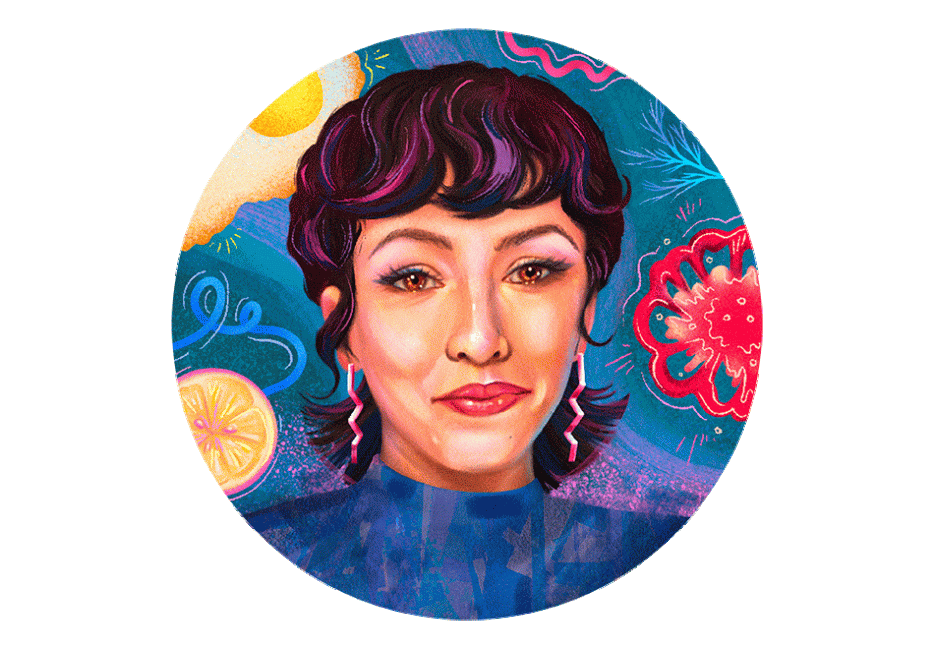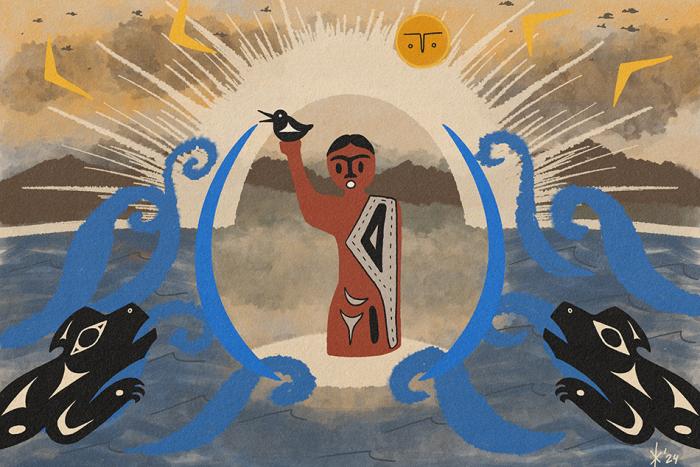Welcome to Cooking is Thinking, a column about the transformation of food and how we feel about it.
The first cookbook I ever flipped through happened to be my mother’s first, as well: an illustrated collection of recipes published the year she got married. It was the early eighties, she had recently moved from Pacific Mexico to Toronto, and she did not know how to cook. Her first season in this country all she made was skirt steak and fries, two things reliably available at the grocery store. When she told her mother over the phone that midwinter, she was sent this book in response.
El Arte En La Cocina Mexicana was published for a Mexican readership and conceptually styled as a return to tradition (different from the same-titled Diana Kennedy’s English-language breakthrough success published eight years later, which was meant to introduce white Americans to the range of Mexican cuisine). It promises authentic cooking from a time before convenience foods, and its pages enchanted me as a child. The illustrations featured no faces or people; just oil paintings of plucked chickens and tamales steaming in clay pots. Cats lapping milk among baskets of sweet breads, perhaps a stray butterfly or bird landing on a pitcher or the edge of a dish. They had the beautiful, slightly lonely effect of traditional still lifes.
A few weeks ago, when I borrowed it from my mother to try making some of its recipes, I learned its dishes tasted nothing like what I grew up eating. The soups were heavier compared to the way my mother eventually learned to make them, the portions massive, the seasoning very scant compared to the herbs and sazon powders and dark liquid sauces I often saw dropped into the pan. It occurred to me that perhaps the book’s biggest editorial strength was its ability to romanticize tradition through illustration. This reminds me how massively popular YouTube cooking channels such as Li Ziqi and De Mi Rancho a Tu Cocina prepare regional foods in rural settings in a way that appeals to wistful urban populations in those countries. The style has spawned many imitators.
Does this make El Arte a bad cookbook? I don’t think so. I also think the process of answering that question—considering who the cookbook is for, whether the recipes work, its style of instruction, the quality and type of pleasure it brings—is just as important as arriving at the conclusion of whether or not to recommend it. This is especially true in an environment where cookbooks continue to sell steadily where other forms of print media have not, despite the rapid expansion of alternate ways to influence people on how to cook and eat at home.
I thought about El Arte while reading food writer and recipe developer Tim Mazurek’s thoughts on cookbook criticism on his award-winning blog, Lottie + Doof, in March 2024. More specifically, I thought about the dearth of it in a rigorous way, the way one might think of it in the traditions of other types of cultural production. “Cookbooks, like all forms of cultural production, are mostly kind of bad,” he writes. “But unlike film, or literature, or even opera, they seem to exist within a culture of very strange universal praise because nobody really engages with cookbooks critically. They receive press.”
The result of this absence, aside from no real industry impetus to dissuade certain types of celebrity chefs from turning out a new cookbook every eighteen months or encourage a TikTok influencer-turned-author to test their recipes more than once, is a lack of breathing room to publicly dislike something. “It can make me feel inappropriate for having such strong feelings about cookbooks. It’s just a cookbook is what the cultural response can feel like.”
It has been interesting to watch people engaged in online food culture agree, elaborate on, or even take umbrage with Mazurek’s assertion. For the record, I strongly agree with him! But rather than spend time defending the idea that cookbooks are worthy of being taken seriously as a cultural product—it’s low-key sexist and high-key unimaginative to suggest otherwise, full stop—I’m interested in thinking about their unique position in cultural production, which makes evaluating them as a product logistically and conceptually different than film or fine art or other types of literature.
From a production perspective, cookbook criticism is significantly more expensive. It requires multiple recipe tests as well as the groceries to conduct them, access to a kitchen, and time to do this all before the writing. From a cooking perspective, evaluation is about more than just determining whether or not the recipes work: can any level of cook reasonably follow its instructions? Depending on the purpose of the book, is this necessary? Is the recipe collection cohesive? What role could such a book play in a home cook’s life? A lot of these questions speak to user experience and craft over art, and take significantly longer to answer.
This isn’t to say there aren’t questions to consider about the art of a cookbook. There are. Some recipes are rapturous, chatty, lyrically written. Art direction, photography and plating can speak to the zeitgeist of how to eat and entertain today—or better yet, shift it. Some cookbooks are structured as memoirs with recipes tucked into their paragraphs; others introduce a specific readership to a type of cuisine they previously knew little about. A good cookbook can be mind-opening, read for or looked at for pleasure, despite having middling recipes. An excellent one can be a tool and art one in the same. As Food and Foodways journal described in an issue dedicated to the form last year, cookbooks are “culturally embedded and historically profound” works that “speak to class, identity and nationhood, reminding us of past lives.”
One might rewatch a favourite movie or reread a book many times over the course of their life, but returning to a cookbook takes on a different nature each time. That’s why I think if it were to exist in a more rigorous form, it would perhaps look something more like what we think of as feature-style restaurant criticism, another discipline that—apart from some consistently excellent voices and outlets—is declining in America, and in major Canadian outlets is all but extinct. “A city deserves critics who have deep historical and cultural context; a city deserves well-paid and thoughtful critics who can tell the truth. The work must be done for the sake of making sense of food in said city, for its people,” food writer Alicia Kennedy recently wrote in her eponymous newsletter. "How many cities have the critics they deserve?”
To transpose that, cookbooks and their various reading publics deserve forms of critique that do more than inform consumption habits and holiday gift purchases. Doing so requires more than judgements that situate them in a good-bad binary. Can this book be of use? To whom? What is it like to read, how does it feel to cook from it—and how might it change the way you do both?






